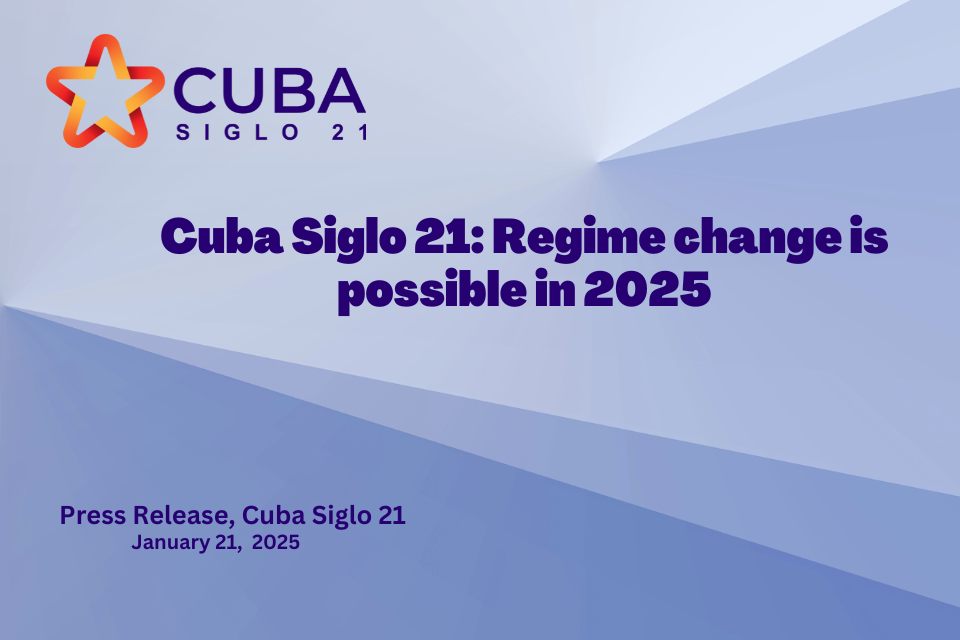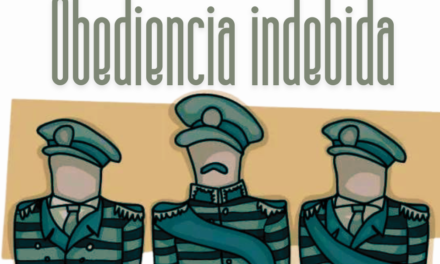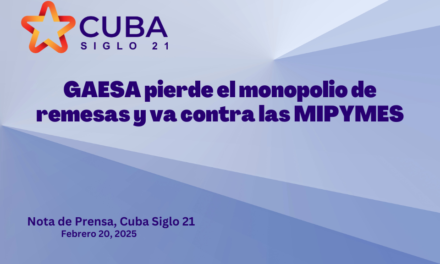Informe completo en español PDF
Complete Report in English PDF
Resumen español
English Summary
“Cubazuela” could become another international crisis to be faced by president Trump in his first year in office besides those in Ukraine, Middle East and Taiwan
January 21, 2025– The combination of the collapse of the governance regime, the extension and deepening of social discontent, the emergence of internal tensions in the power bloc and greater strategic clarity in Washington at the arrival of the Trump Administration could mark a turning point and the beginning of a decisive stage on the island. That circumstance coincides with a very deep instability of Maduro in Venezuela. The codependence of both regimens has helped them to sort out several crisis in the past, but this time could represent a common Achilles Heel to mark their mutual downfall.
The think tank Cuba Siglo 21, in its latest report “Cuba 2025: Possibilities and Probabilities,” reveals a critical outlook on the island, indicating that the totalitarian governance system has collapsed, and that political regime change is a real possibility in 2025.
In this report, Cuba Siglo 21 has included for the first time an evaluation of general governability on the island, classifying it as poor. To do so, it evaluated six of the international indicators usually used for this type of analysis: rule of law, economic-social security, state efficiency, corruption, international relations and political stability.
“Many things that until recently were considered impossible are now possible and even probable,” say authors Emilio Morales and Juan Antonio Blanco.
The analysis details that the regime faces unprecedented weakening due to several cumulative factors, including:
- Economic collapse: The drastic drop in income from tourism, remittances and the export of medical services combined with the absence of foreign direct investment has left the country in a precarious financial state.
- Social crisis: The mass exodus of more than one million people in the last three years reflects widespread despair, while poverty affects close to 90% of the population.
- Political instability: Since the mass protests of July 11, 2021, the citizenry has shown persistent resistance in defiance of increasing state repression.
Without changing the totalitarian system of Cuban government, it is not possible to stabilize the island, avoid new mass migrations and ensure that it ceases to be a focus of international subversion. Regime change is the demand now being made publicly by broad sectors of the population. By regime change the report refers to changing the framework of institutions, laws, rules, regulations and ways of thinking that are administered by the government. However, government change also becomes essential, because in this case it has demonstrated, beyond any doubt, that it is opposed to regime change and intends to perpetuate it. In such circumstances the government is part of the problem and not part of the solution.
The report stresses that the eventual death of Raúl Castro in 2025 could unleash internal struggles within the power elite, which, combined with popular discontent and international pressure, could lead to a transition to a new political model. Although this change is not fully guaranteed, – nor is the direction it could take – current conditions make it more likely than ever.
Among the possibilities on the horizon, the report identifies two main ones:
- A civil-military movement led by pro-democracy forces to establish a transition to democracy and the rule of law.
- A controlled change from within the power bloc, which could result in a new autocratic and illiberal regime with some degree of controlled economic openness.
The international community, particularly the United States under the Trump administration, could play a crucial role if it decides to actively support the democratic demands of the Cuban people and deter the regime from resorting to violence even, if necessary, by neutralizing its repressive apparatus with targeted surgical and punctual military actions.
The report concludes that 2025 could be a decisive year for Cuba’s history, provided that the social and political forces aligned with democratization manage to articulate a joint representation and strategy.
The authors draw attention to the fact that “what decides historical events is not what we, analysts, believe possible, but what the actors themselves – mistaken or not – decide to believe possible. It is this faith that leads them to act and triumph against all apparent logic. By repeatedly attempting the impossible, they end up making it possible.
In short, 2025 represents a historic juncture where the several previously “impossibles” are now possible and could become a reality if the necessary conditions are met.







